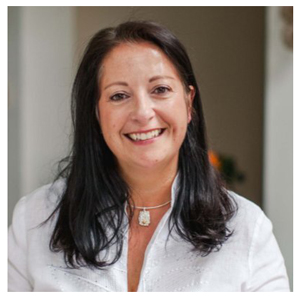
Q&A withVirtuoso Assistant
Startups Magazine recently spoke to Nicky Pasquier, CEO Virtuoso Assistant, the digital marketing for entrepreneurs and small business.
Can you tell me about your background?
I initially started out working as a virtual assistant under brand umbrellas, mainly because I had no experience working as a virtual assistant before. I had worked as a senior legal PA, after that I mostly worked as a freelance legal transcriber.
It’s been six years since I started working as a virtual assistant and I now specialise in helping small businesses flourish online with visual content marketing.
Tell me about your company and how you help startups?
At Virtuoso Assistant, I focus on utilising digital marketing strategies to help other startups grow and develop their business. I’m passionate about helping small businesses learn how to use visual content to build their brands. It’s one of the best organic marketing strategies and it’s low-cost so it can be used over a long period of time. I find this is the best way to attract, engage with and impress my target audience. As a startup myself, I discovered two strategies early on that changed my business structure and helped me stand out from the crowd right from the start. Without them, I can honestly say that my business may not have been as successful as it is now.
Where did the idea come from?
It all started in February 2013, when I decided to leave my job after spending 16 years working in Civil Litigation. I actually loved my job, but I had reached my zenith with constant deadlines and increasing workloads. I had always wanted to work for myself, and whilst I wouldn’t recommend a drastic career change, things have actually changed for the better and I am very proud of my current business.

I had no plans to run my own business, nor did I have any experience or funding when I first started out. However, I was determined and focused to make something for myself and I decided to learn as much as I could about social media, blogging and marketing as I could on a shoestring budget. This autodidact approach was crucial as it motivated me to learn more and share what I had learned with other people, and so Virtuoso Assistant was born!
What sort of businesses do you work with?
Startups and small businesses.
What are the main challenges businesses face in marketing?
I don’t believe small businesses find their ‘niche’ fast enough. They try anything and everything they feel will attract more customers but in being a ‘Jack of all trades’ a business will end up being an expert in nothing. It’s so important to become known as an expert in one particular topic in the first instance, such as Facebook Ads or Instagram marketing, and then branch out a few years down the line.
It’s also important for a business to research which social media platforms their target audience uses most and then focus on one or two of them. It’s very easy to get side-tracked by new and exciting social media platforms like TikTok but if a business’ target audience isn’t using it, they shouldn’t either.
Similarly there is no ‘need’ to buy social media ads to attract prospective customers. It works for some people but it’s a very costly exercise and isn’t sustainable. Focus on marketing strategies such as blogging and video creation that can be sustained over long periods of time. Live video is a great way for young brands to engage with their audience on Facebook, for instance.
And most importantly it’s essential a brand expresses its own personality since this is the one thing that will differentiate it from every other business. Don’t blend in, stand out from the crowd!
How important is digital marketing in today’s world?
Without digital marketing, businesses are at risk of getting left behind. I mainly focus on visual content marketing and email marketing as the two main forms of low cost digital marketing. Visual content marketing focuses on the art of creating beautiful and eye-catching graphics, videos, photos and other media content to attract your target audience online, convey your business message and help tell your brand story. There is a plethora of other businesses all competing in similar sectors, therefore it’s important to stand out from the crowd right from the start. Email marketing, on the other hand, is all about communicating with your target audience away from social media. It’s very effective in nurturing prospective customers, and I argue is one of the key forms of digital marketing to really help other startups flourish and reach their true potential.
How many on your team and how did you build and grow it?
At the moment I am a solopreneur, however I work with a few other organisations to help build my own business. I’ve been using design platform Canva since 2013, and Canva has radically changed my business in that I’d never have succeeded without it. Canva is incredibly useful for every stage of the customer journey but I’d be tempted to say that it’s particularly powerful for generating brand awareness, especially if you’re a micro business or a freelancer. The visuals really help you to stand out online and convey your brand message.
Do you have any competitors, if so, how do you differentiate yourselves?
Yes I do have a fair few competitors but who doesn’t in business? I think my Canva audience can relate to me since I don’t have any design qualifications; I’m completely self-taught. People often make the mistake of believing they’re not creative and so can’t use Canva. In fact all they need is to learn step-by-step with a little guidance and at their own pace.
What challenges have you faced, and how have you overcome them?
As with every business around the world, the effect of the coronavirus pandemic has posed a challenge to my business and other businesses in marketing. Strangely, whilst my regular client work dropped off a cliff, I had a stream of new clients reaching out to me specifically for design work. I think this is because a lot of small businesses have suddenly realised that raising their brand profiles online and engaging with followers is really key at the moment rather than doing the ‘hard sell’.
What’s next for you guys?
I’m committed to creating a stronger social media presence for my business, I already have a YouTube channel with 2.7k followers. I mainly create and share Canva educational videos at the moment and I use Twitter to showcase my videos and get in touch with other people who are interested in using design platforms. I’m very much looking forward to speaking (virtually) at a conference for PAs, EAs and VAs in September this year and sharing some Canva tips. I’m going to highlight the benefits of creating presentations in Canva rather than PowerPoint.

